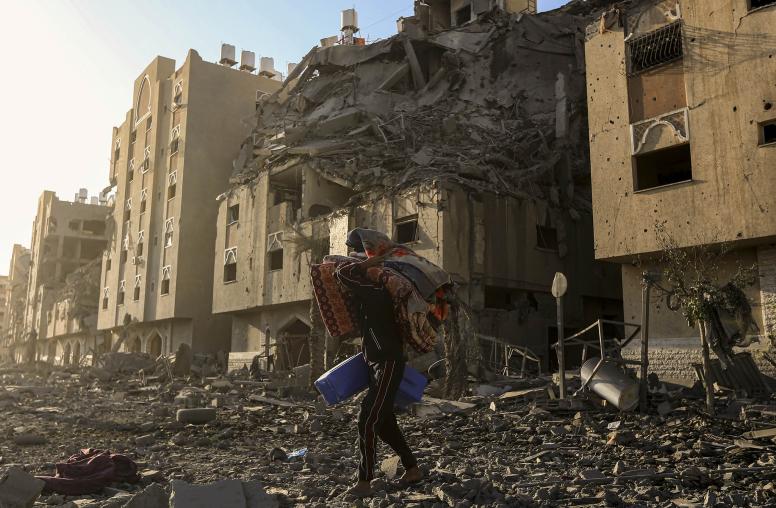Israel (Un)Divided: Internal Conflicts and Prospects for Peace
This panel event examined various levels of internal dynamics in Israel – divides within the current government and coalition, fissures within Israeli society more broadly, and how these internal dynamics impact the course of the Arab-Israeli conflict and Israel's own relations with the United States.
.jpg) For Israel, the question of peace with its neighbors has always touched on the most sensitive internal divides. As part of a USIP series focusing on domestic politics in Israel and its neighbors, a panel of esteemed experts examined various levels of internal dynamics in Israel – from divides within Prime Minister Benjamin Netanyahu's inner circle to fissures within Israeli society more broadly – and their impact on Israel's regional conflicts and its relationship with the United States.
For Israel, the question of peace with its neighbors has always touched on the most sensitive internal divides. As part of a USIP series focusing on domestic politics in Israel and its neighbors, a panel of esteemed experts examined various levels of internal dynamics in Israel – from divides within Prime Minister Benjamin Netanyahu's inner circle to fissures within Israeli society more broadly – and their impact on Israel's regional conflicts and its relationship with the United States.
Speakers:
- David Makovsky
Ziegler Distinguished Fellow and Director, Project on the Middle East Peace Process
The Washington Institute - Yoram Peri (USIP Senior Fellow, 2001-2002)
Abraham S. and Jack Kay Chair in Israel Studies and
Director of the Joseph and Alma Gildenhorn Institute for Israel Studies
University of Maryland - Shai Feldman
Judith and Sidney Swartz Director of the Crown Center for Middle East Studies
Brandeis University - Scott Lasensky, Chair and Discussant
co-author with Daniel C. Kurtzer, "Negotiating Arab-Israeli Peace"
U.S. Institute of Peace
About this Series
The Israeli-Palestinian Conflict: Internal Challenges on the Road to Peace
Certain domestic Israeli and Palestinian concerns – from state institution-building and secular-religious divides, to coalition politics and educational reform – have strong implications for the broader conflict, and for international efforts towards a peaceful resolution. Through a series of panels and related publications over the course of the year, USIP will explore such critical yet oft-neglected internal dynamics.
Learn more about this series



